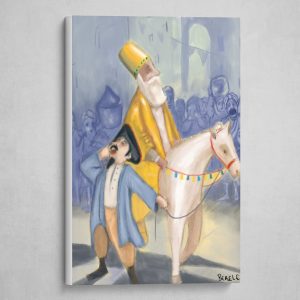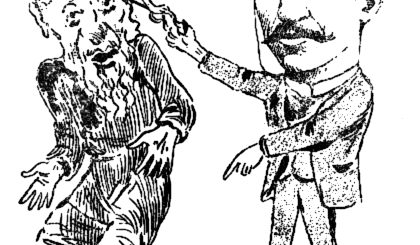Parshas Ki Seitzei – A Puzzling Parallel

It is striking and strange that a phrase that is to be proclaimed by the yevama, the childless widow whose brother-in-law does not wish to marry her, is the precise phrase in Megillas Esther, bearing the same cantillation, used by Haman when he tells Achashverosh what should be proclaimed as “the man whose honor the king desires” is paraded through the city in royal robes on the royal horse. And is proclaimed, in the end, by Haman as he parades Mordechai.
“Thus shall be done to the man… who will not build up his brother’s house” (Devarim 25:9).
And “Thus shall be done to the man… whose honor the king desires” (Esther 6:9).
The phrase occurs in only those two places.
Strange, as well, is that (to my knowledge) none of the major commentaries so much as notes the parallel.
Adding to the essential riddle is that, mere pesukim after the yibum description, are the commandments to “remember what Amalek did to you” and to “wipe out the memory of Amalek.” Haman, of course, was a scion of Amalek.
What occurs to me is that Mordechai, before whom Haman’s “Thus shall be done…” ends up being proclaimed, is “filling in,” so to speak, for the long-deceased King Shaul, who allowed the Amalekite king Agag to live, resulting in Haman. A yavam is similarly “filling in” for his deceased brother. Years ago, my daughter Shiffy Jakubowicz, then Shiffy Shafran, added at our Shabbos table that yibum is a hakamas sheim, an “establishment of an identity,” and what we are commanded to do to Amalek is mechiyas sheim, the “obliteration of an identity.”
Both my and her observations are intriguing. Although the ultimate meaning of the riddle remains elusive.
© 2023 Rabbi Avi Shafran
My most recent Ami Magazine column, “A NOIsome Email, can be read here.




Recent Comments